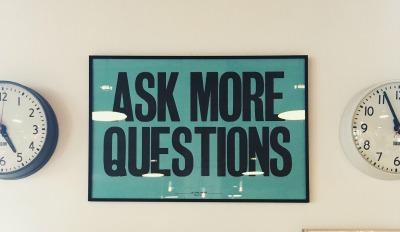Archive for January 2017
How To Set Boundaries When Co Parenting With A Narcissist
Implementing these boundaries when co parenting will make parenting with your narcissistic ex easier.
One of the reasons your marriage ended in divorce was because living with a narcissist just wasn’t worth it any longer.
You hoped that by getting divorced your life would be infinitely better. You’d do your work to overcome the PTSD and low self-esteem and depression and whatever else you were suffering with in your marriage and things would be better for you and for your kids.
And now that you’re divorced, some things are better.
But when it comes to co parenting with your ex, the torture you experience is the same as (or worse than) it was when you were married.
You chose co parenting for your children because “experts” promote it as the best way to parent post-divorce. You followed their advice that the key to being successful is to set boundaries when co parenting. Well, you’ve tried and tried to establish boundaries to make co parenting with a narcissist work, but life is still a living hell whenever you interact with your ex.
The crux of the problem is that co parenting with a narcissist doesn’t work any better than marriage with a narcissist does.
But there is hope.
You must set entirely different boundaries when co parenting with a narcissist than you would if your ex wasn’t so self-absorbed.
- Ditch the idea of co parenting. It may work for people who have a sane ex, but it won’t work for you. Since co parenting is impossible with a narcissist, you’ll want to switch your model to parallel parenting. (This might mean modifying your current parenting plan to make things black and white.)
- Set firm boundaries for your children. Because life with their other parent is so unpredictable, you’re the one who will need to provide stability for your kids.
- Limit your children’s contact with the off-parent. Limiting your ex’s time to interact with your children when it’s your time is a pretty obvious boundary to implement. But limiting your kids’ contact with you while they’re with their other parent is important too. Unless there’s an emergency, your kids shouldn’t be contacting you because it sets them up to hear what your ex thinks of you and perhaps puts them in jeopardy for the anger to spill over to them.
- Remove yourself from the reign of terror. Part of moving on from a narcissist’s control is by being assertive (not aggressive) and unemotional when dealing with them. When they start berating you, fight your instinct to defend yourself and hang up the phone, block their number when your kids are with you, close the door in their face, or leave their presence.
- Establish boundaries around your home. Your home is your (and your children’s) sanctuary. Don’t let your ex into your home because they’ll bring all their hatred with them.
- Teach and model both social and emotional intelligence for your children. You’re the only parent who can do this in a healthy way. Make sure you’re doing your best to help you children learn how to productively interact with others.
- Keep records of everything that happens between you and your ex. Your ex will use everything they can think of to win and make your life miserable. And this definitely includes taking you back to court. So follow the Boy Scout’s motto and Be Prepared!
- Be brief, informative, friendly, firm and NEVER admit to making a mistake when you communicate with your ex. If you deviate from this communication style, all you’re doing is giving your ex ammunition for hurling insults and abuse your direction. (A great book about this communication method is BIFF: Quick Responses to High Conflict People, Their Personal Attacks, Hostile Email and Social Media Meltdowns by Bill Eddy.)
- Nurture your children’s individualism and independence. Your ex, the narcissist, sees your children as extensions of themselves who need to be controlled – not nurtured. So fostering individualism and independence in your kids falls squarely on your shoulders.
After reading this list of boundaries when co parenting with a narcissist you’ve probably noticed that all of them deal with you eliminating contact with your ex and taking the lion’s share of responsibility for raising happy, healthy children. These new rules for your life might even seem exhausting. But making these changes and putting in the effort will be totally worth it because the reward is the better life you were hoping for when you got divorced.
I’m Dr. Karen Finn, a divorce coach and advisor helping people just like you who want support in figuring out how to parent post-divorce. You can join my newsletter list for free weekly advice. If you’re interested in taking the first step toward working with me, you can schedule an introductory private coaching session.
Looking for more tips about parenting with your ex? You’ll find what you’re looking for in Coparenting.
How To Be In A Relationship After Divorce Broke Your Heart
You’ve worked hard to get over your divorce. Don’t let it get in the way of your future happiness.
Living through the tumultuous end of your marriage is one of the most difficult things you’ll ever do. And the repercussions of it echo through your life in often surprising ways – and sometimes for a long time after your divorce is a done deal.
One of the most common ways to experience the fallout of divorce long after it’s final is in your new relationships.
So, when you meet someone you really like, it’s natural to wonder how to be in a relationship with them or if you even want to be in a relationship again.
This pause to question whether you want another relationship usually driven by fear. When your heart has been broken by divorce, it’s very difficult to believe that you could ever have a good relationship.
Your struggle with how to be in a relationship again could quite simply be a fear of the past repeating itself. But here’s the thing, the ONLY way this fear is real is if these two things are true:
- You’re exactly the same person you were.
- Your new love interest is just like your ex.
Now, if you’ve done your work – really done your work – to heal from your divorce, one of the things you now understand is your part in the failure of your marriage.
And because you’re smart and determined, you’ve taken the steps necessary to make sure you no longer behave in that way and you know how to spot it quickly when you do. This alone guarantees that you’re NOT exactly the same person you were.
Another benefit of doing your work to get over your divorce is that there’s very little chance you’re attracted to the same type of person you divorced. (Remember that the person you divorced is seldom the person you thought you married.)
So, if you’ve done all the hard work to heal, your fear of not being able to have a good relationship isn’t based on facts. It’s just a fear of the past that’s holding you back from exploring your new life – the life you’ve been working so hard on making great.
Now when you really take a step back to look at it, it’s your ex and the memory of your marriage that’s keeping you from exploring the connection you have with your new love interest. And you sure don’t want your ex controlling your future!
Another reality is that the connection you have doesn’t guarantee that a relationship with this new person will work out or that you should enter it without caution. It just means that you’re attracted enough to want to explore how to be in a relationship with them.
Taking a chance to learn how to be in a relationship again with someone you genuinely care about can be extremely fun – especially after all the effort you’ve put into moving on with your life. And if this new relationship has the potential to contribute to your happiness, you deserve to explore it without fear.
So silence the echoes of your divorce and don’t let them get in the way of your pursuit of happiness.
I’m Dr. Karen Finn, a divorce coach and advisor helping people just like you who want support in moving on with their life after divorce. You can join my newsletter list for free weekly advice. If you’re interested in taking the first step toward working with me as your personal coach, you can schedule an introductory private coaching session.
Looking for more tips for moving on with your life after divorce? You’ll find what you’re looking for in Life After Divorce.
4 Secrets To Putting Your Divorce Behind You
By consistently using these 4 secrets, you’ll avoid getting stuck as you heal from divorce.
Many people naively assume that moving on after divorce happens naturally. They believe that somehow after either the decision to divorce is reached or the divorce agreement has been signed you are suddenly free from the past and should be over your divorce.
The truth is the people who think like this have rarely been through divorce themselves. They don’t know the agony of a failed marriage. They also don’t know how difficult it is to be able to honestly say that your divorce is just part of your past and not a constant presence in your life.
Despite the difficulty, you can truly get over your divorce and enjoy your new, unmarried life. But it will take more than just time passing or ink drying on some legal documents.
To put your divorce behind you, you’ll need to regularly use these 4 secrets:
- Have a vision for your life. Once you know what you want, it’s a whole lot easier to start doing what you must to have that life.But this isn’t quite as simple or easy as it seems at first. That’s because people who are struggling with getting over their divorce often make two mistakes when they create their vision.First, they want things the way they were when they were married. This doesn’t necessarily that they want everything like it was, but they want their finances or their time with their children or the help around the house like it was before their divorce.
The second mistake they make is focusing more on what they don’t want instead of what they do. Now there is some value in being clear about what won’t work for your life, but if that’s what you focus on that’s all you’re going to see.
You can avoid both errors. All it takes is a willingness to try out new ideas so you can decide what you do want. Doing so will be incredibly helpful to you putting your divorce behind you.
- Be honest. What this means is that you can see past the hurt of your divorce, set aside the blaming and fault-finding and know your part in the end of your marriage. Spending the time to understand your part will make your life easier.With this knowledge, you’ll know what you need to modify to make your next relationship better. (This knowledge will also help you be a better co-parent.)Another benefit of being honest with yourself is that you’ll be able to let go of your emotions baggage.
- Show gratitude. It’s amazing how your view of the world can shift dramatically when you start to view the world through the lens of thankfulness instead of lack, criticism and judgment.Showing gratitude doesn’t mean that you should be thankful for struggling financially or for missing out on being able to kiss your children goodnight every night or your ex’s poor behavior. What is does mean is that you focus on the positives – that your children are healthy, that you have a place to call home, etc.Wayne Dyer put it best, “when you change the way you look at things, the things you look at change.” And by showing gratitude, you’ll start seeing the good that’s all around you which will help you put your divorce into your past.
- Be adaptive. Divorce introduces HUGE changes that impact nearly every facet of your life. The only way to survive the changes and thrive after your divorce is by being willing to adapt to them. Adapting to your new situation will require you to accept what has happened and may still be happening, but not to let any of that define you.Being adaptive means that you’re willing to look for alternative ways to achieve your vision for your future instead of getting (or staying) stuck.
Although using these four secrets will help you put your divorce behind you, you’ll probably discover that you have a difficult time consistently embracing them.
That’s because these are new ways of thinking and behaving when you compare them to what you’ve been doing to simply get through your divorce.
And because they’re new you may need some practice to master them. So be easy with yourself as you’re learning how to move on from your divorce.
You’ll find that as you master these secrets that you’ll naturally be more engaged with your life now and your divorce will become just a part of your past.
I’m Dr. Karen Finn, a divorce coach and personal life coach helping people just like you who are looking for support advice about healing from divorce. You can join my newsletter list for free weekly advice. And, if you’re ready, you can take the first step toward working with me as your personal coach by scheduling a private consultation.
Looking for more tips on getting over your divorce? You’ll find what you’re looking for in Healing After Divorce.
This article originally appeared on The Good Men Project.
How To Deal With Loneliness When You Divorce
These 11 tips will help you escape from the isolation of loneliness after divorce.
Divorce catapults you into a stormy sea of emotions. Anger, disbelief and loneliness are just a few of the overpowering emotions you experience as you deal with the end of your marriage. Learning to deal with each of them is critical to your ability to move on, but learning how to deal with loneliness is one of the most difficult.
Dealing with loneliness is especially challenging because it’s a self-perpetuating emotion. It’s not energizing like anger so you can just work it out of your system by constructively expressing it. And it’s not like disbelief that you can conquer by consistently being presented with facts to the contrary.
Loneliness feeds upon itself. The more you experience it, the greater it becomes and the more difficultly you’ll have conquering it.
Loneliness grows deeper and more profound the more you experience it.
But feeling lonely as you deal with divorce is normal. You’re not really destined to be alone and lonely for the rest of your life – no matter how you feel right now.
“Feel” is a key word here because loneliness is a feeling. It isn’t a fact. And since it’s a feeling, you can change your feeling by working through it instead of being trapped by it.
Here are 11 tips for how to deal with loneliness so you can move on from your divorce:
- Connect with others who know what you’re going through. Despite how unique your circumstances or how different you feel, there are plenty of people who can easily empathize with your situation – everyone who is going through divorce gets what you’re dealing with. And the quickest ways to find these people are in online divorce communities and in divorce support groups.
- Get clear about what’s missing. You probably spent time alone when you were married and didn’t feel the same sense of overwhelming loneliness you feel right now. That’s because you’re feeling like there are things missing from your life now that weren’t before. By coming face-to-face with exactly what’s missing, you’ll be able to start grieving the losses instead of staying stuck in them. And once you start the grieving process, you’ll be gain clarity about how you want to either replace or eliminate what’s missing.
- Be compassionate with yourself. Getting through divorce is tough. Have patience as you find your way through yours. Do little things to pamper yourself every day and be sure to reward yourself for achieving the goals you set.
- Create a new routine for yourself. Mourning the loss of a shared routine (like talking about the day’s events with your spouse over dinner) can trigger loneliness. So instead of focusing on the old routine, create a new one for yourself.
- Disconnect a bit from social media. You don’t have to go ghost on your friends, but it wouldn’t hurt you to stop using their lives (or your ex’s life) as reasons to feel lonely.
- Let go of your toxic relationship. Letting go of your marriage (and what it represented to you) is a process. But the truth is that if it ended, it wasn’t a good relationship for you. And the longer you hold on to it, the more toxic is becomes to you.
- Practice gratitude. It is incredibly hard to feel grateful when divorce has ripped (or is ripping) your entire life away from you. But the thing is that as you start to appreciate what you still have and look at the obstacles ahead of you as challenges to overcome, you’ll have conquered one of the keys for learning how to deal with loneliness.
- Focus on your kids and what they need to deal with the divorce. Taking care of them will automatically force you to stop ruminating about how lonely you feel because taking care of your kids is a whole lot of work. And as you work to help them, you’ll naturally experience other emotions than loneliness.
- Choose to learn something (just like you’re doing for how to deal with loneliness). Learning is a great way to shift your emotions from loneliness to curiosity. You might choose to go back to school to improve your earning potential, or to use your divorce as a reason to pursue personal growth, or even to learn new skills to make your new life easier. (You’ll be surprised at the joy you can feel when you learn how to do things on your own!)
- Avoid inactivity. Being inactive or feeling bored is like putting out the welcome mat for loneliness. Instead, make a list of things you can do for fun or to just finally get done. So, the next time inactivity contributes to your loneliness pick an activity and get busy.
- Talk with someone about your feelings. Sharing your emotions with a friend or caring professional is great because they’ll often have insight into how to deal with loneliness that you don’t.
These 11 tips are just the beginning of things you can do as you learn how to deal with loneliness when you divorce. So, experiment with them. One may work better for you today than tomorrow. And try new ideas for breaking through feeling lonely as you discover them.
The more often you can acknowledge your loneliness as an emotion and then choose to do something to shift that emotion, the quicker you’ll conquer it and move on from your divorce.
I’m Dr. Karen Finn, a divorce and personal life coach helping people just like you who are struggling with the loss of their marriage. You can join my newsletter list for free weekly advice. And if you’re interested in taking the first step toward working with me, you can schedule an introductory private coaching session.
Looking for more tips on getting through the pain of your divorce? You’ll find what you’re looking for in Dealing With Grief.
Is Your Bad Marriage Bad Enough To Leave?
Guidance for answering one of the most difficult questions you’ll ever face.
No marriage is perfect – no matter how things may look from the outside. Every couple has struggles and for some the struggles are so great that the only way to describe their union is as a bad marriage.
But there are a couple of curious things about bad marriages.
Some aren’t bad all the time or even most of the time. These are marriages that are situationally unhealthy and are reactions to something specific that happens.
The other curious thing about unhealthy marriages is that bad isn’t the same for everyone. What one couple (or one spouse) calls bad another couple easily accepts as normal.
So what causes a bad marriage?
There’s no single or simple answer here. People who are in unhealthy marriages have all kinds of ways to describe what is the root problem of their relationship woes.
- Betrayals – sexual and emotional
- Too much fighting
- Regularly receiving the silent treatment
- Not talking about problems
- Not cooperating or working together
- Not listening to understand
- Finding blame instead of problem-solving
- Being taken for granted
- Not meeting sexual needs
- Not meeting needs for intimacy
- Keeping secrets
- Passive/aggressive behavior
- Resentment
- Apathy
- Prolonged or repeated absences
- Infidelity
- Stinginess
- Wastefulness
- Anger issues
- Selfishness
- Lying repeatedly
- Improper parenting behavior
- Putting other family first
- Abuse
- Untreated addictions
- Irresponsibility
- Contempt
- Rudeness
- Scorn
- Bad example of marriage for children
- Gaslighting
- Name calling
This is a long list and by no means is it complete. But what is interesting about this list is that it only contains three definite signs of divorce: abuse, refusal to treat addictions, and setting a dismal example of marriage for your children.
There is no doubt the rest of the stuff on this list describes a bad marriage. But even if one or more of these descriptions nails what’s wrong with yours, it doesn’t necessarily mean that it’s time to leave your marriage.
Identifying that you have a bad marriage is just one piece of the puzzle to knowing if it’s bad enough to leave. (Unless you’re dealing with one of the definite signs you should get divorced.)
Knowing that you have a bad marriage should trigger you to start asking other questions. Questions like:
- Am I OK living like this?
- Do I still love my spouse enough to want to work on things?
- What have I already done to make my bad marriage better?
- What am I willing to do to make it better?
- Do I have hope things can be better?
It’s only by asking tough questions like this and answering them with brutal honesty that you’ll ever know if your bad marriage is bad enough to leave or only bad enough to make better.
I’m Dr. Karen Finn, a divorce and personal life coach. I help people just like you who are struggling with a bad marriage. You can join my newsletter list for free weekly advice. And, if you’re ready, you can take the first step toward working with me as your personal coach by scheduling a private consultation.
Looking for more tips on dealing with your bad marriage? You’ll find what you’re looking for in Unhappy Marriage.
Bi In Hetero Marriage: Am I Cheating If I Have Homosexual Sex?
The answer is definitely … it depends.
Outside of the legal definition, marriage is a commitment that two people make to each other. For most couples the commitment includes monogamy.
But what happens if a bisexual person enters into a marriage with a heterosexual person and still wants to have homosexual sex? Will they be cheating if they do?
If you’re bisexual and in this situation, you know this is a complicated question to answer. Yet by your willingness to answer it you’re doing a couple of great things. First, you’re honoring yourself by being aware of your needs (and your sexual identity). Second, you’re displaying love and respect for both your spouse and your marriage.
Getting back to answering the question … The only way to know if having sex with a same sex partner is cheating on your spouse is to look at your specific situation.
Situation 1: Your spouse knew you were bisexual and wanted to continue having homosexual sex when you married.
Since your spouse entered into the union knowing your sexual orientation and that you still wanted to fulfill your desire for sex with a same sex partner, you probably figured out a way to respectfully communicate about when you would do so.
If you communicate as you agreed, having homosexual sex while married to your heterosexual spouse is not cheating.
However, if you do not communicate with your spouse as you agreed, then you are cheating.
Situation 2: Your spouse knew you were bisexual but didn’t know you wanted to continue having homosexual sex after the marriage.
Ideally, you will talk with your spouse about your need for sex with a same sex partner before you engage in it. Hopefully, they understand or at least appreciate your situation and come to some kind of loving agreement with you about how you can have your needs met. Maybe they’ll even be up for a threesome so both of you can enjoy the experience.
If you respectfully communicate with your spouse and together come to agreement about how you can get your needs met and if you follow through with that agreement, then you are not cheating.
However, if you either don’t let your spouse know about your needs or don’t adhere to the agreement you made, then you are cheating.
Situation 3: Your spouse didn’t know you were bisexual before you married OR you discovered you were bisexual after your marriage.
For many this is the toughest situation because it means sharing a part of you with your spouse that you’ve never shared before. But it’s vitally important that you do because if you don’t you’re living a lie and forcing your spouse to live one too.
As uncomfortable as the thought of this discussion might be, you can have it in a way that’s loving and respectful to both of you. That is if you plan for it and expect for it to take some time for your spouse to fully accept it.
Once your spouse has accepted it (or at least come to terms with it), you’ll have an easier time telling them about your need for sex with a same sex partner. You might be surprised by their willingness to experience your newly discovered sexuality (at least it’s new to them) with you by having a threesome. Or they could even suggest an open marriage or polyamory.
After you’ve had this difficult conversation with your spouse and agreed on how you can respectfully meet your needs, then you are not cheating.
However, if you don’t have this conversation with your mate or don’t adhere to the communication you agreed to, then you are cheating.
As complicated as your situation is, there is a basic truth about determining whether or not having homosexual sex is cheating or not. And that truth is if you’re betraying your mate’s expectations about the type of contact you have with another person, then you’re cheating.
Having open dialog with your spouse about your needs, agreeing on how you can have those needs met and then adhering to that agreement is the only way that having same sex sex within your heterosexual marriage is not cheating.
I’m Dr. Karen Finn, a divorce coach and advisor who believes that choosing divorce is a last resort. You can join my newsletter list for free weekly advice. If you’re interested in taking the first step toward working with me, you can schedule an introductory private coaching session.
Looking for more help to make your marriage better? You’ll find what you’re looking for in Surviving Infidelity
This article originally appeared at DivorceForce.
Dating – It Is Not Always About Finding That Perfect Person
There are other truly amazing reasons to date besides getting hitched again.
I can’t tell you how many people (especially men) I’ve talked to over the years who begin dating after divorce for the sole purpose of finding “the one.” You know, the person who really will love them for the rest of their lives (unlike their ex who said they would, but didn’t).
The problem is that when recently divorced people approach dating from this perspective they’re setting themselves up for another heartbreak. (Yes, this is the voice of personal experience and of observation.) And, no, it’s not 100% true all of the time, but it’s more true than not.
The reason why starting to date with the goal of finding the perfect person for you is so problematic is because you’re probably not completely you yet.
A bad marriage and divorce takes a toll on you. Over the years you adapted to the situation. And by adapting you’ve probably given up little pieces of yourself here and there.
On top of that most divorces are incredibly painful to go through. Because of the pain, it’s natural to gravitate to people who are caring and kind without much regard for the rest of their personality.
Finally, when your purpose for dating is just to find your next Mr./Mrs. you’re short-changing yourself. You’re not rediscovering your innate strength to stand on your own two feet and you’re allowing yourself to become (remain?) co-dependent.
If dating after divorce isn’t just about finding the perfect person for you, why bother dating?
None of this means you shouldn’t date (when you’re ready). It just means you need a different perspective.
Here are four different reasons to date besides finding “the one”:
- To Have Fun
Getting divorced sucks. There’s nothing fun about the process of divvying stuff up, ripping apart your family and crash courses in both family law and finance. Oh and then there’s the whole part about feeling like crap. Going out and having fun with people who find you attractive is a terrific reason to date!
- To Interact With Another Adult
For a lot of people parenting and work consume their lives post-divorce. And that means you’re surrounded by people who need something from you which is especially draining. Getting out and conversing with another adult who finds you attractive is another wonderful reason to date.
- To Have Your Sexual Needs Met
Look I know you’ve got the whole self-gratification thing down and it works – especially in a pinch. But seriously, you and I both know it’s not nearly as much fun as having sex with someone. And so, yeah, dating to find sexual partners (and practice safe sex) really works as another reason to date.
- To Learn About Yourself
So I saved this reason for last because it’s actually the most fulfilling – long-term. I’ve met very, very few people who are 100% themselves before, during and after divorce. Most of us need a bit of time to rediscover who we really are after we shed all of the habits of thought and behavior we’ve developed as we tried to deal with the marriage and divorce. So dating gives you an amazing opportunity to explore things about you. For instance, you’ll have a chance to learn what you do and don’t like about the various people you meet. You’ll also learn about what you do and don’t like about your own behavior when you’re spending time with all these people.The real bonus here is that by allowing yourself the chance to interact with different people you’ll get more clear about who really will be the perfect partner for you when you are finally ready to settle down.
Hopefully, these other reasons to date are at least as exciting to you as finding the perfect partner. As you look at this list I wish for you to see that none of the items on it preclude finding “the one.” In fact, you could argue that they’re all part of it. The thing is that if you allow yourself to ease up on the drive to find the perfect partner now, you’ll have a better shot at find them when you’re truly ready.
I’m Dr. Karen Finn, a divorce coach and advisor helping people just like you who want to create a great life for themselves post-divorce. You can join my anonymous newsletter list for free weekly advice. If you’re interested in taking the first step toward working with me as your personal coach, you can schedule an introductory private coaching session.
(H3) Looking for more support and ideas for healing from divorce? You’ll find what you’re looking for in Life After Divorce.
This article originally appeared at DivorceForce.
Are Negative Thoughts Common After Divorce?
The help you need for understanding your post-divorce negative thoughts and how to stop them.
Getting through all the drama, trauma and legalities of divorce is positively exhausting. It makes sense that you would wrestle with negative thoughts while you’re going through divorce.
After all, before your divorce was final it was perfectly normal to struggle with coming to terms with the end of your marriage, your (and your kids’) tumultuous emotions, all the legal stuff, your drastically altered financial situation, and figuring out how to live your life now that you’re single.
You’d think that after the ink dried on your decree that you’d feel better. But you don’t – at least not completely. Sure, some things are easier. Yet you’re still plagued by horribly negative thoughts.
Thoughts like:
- I’m going to be alone for the rest of my life.
- I’m a failure.
- How could s/he give up on us so easily?
- Why has s/he moved on already?
- It’s so unfair that my life has to change like this.
- I know this divorce has destroyed my kids’ chances of ever being happy.
And these critical, fearful, worrisome, angry and despairing thoughts worry you. You believe that you should be over it all by now. And with that belief, your fears and worries intensify because you’re clearly not over it.
What you need to know is that negative thoughts are common – especially after divorce.
That’s right. Negative thoughts are common – period. They’re common not just after divorce, but in general.
Why are negative thoughts common? Because we evolved from people who needed to constantly scan their environments looking for problems to fix so they (and their families) could stay safe. And that’s why we do the same today. In fact, it’s estimated that 80% of everyone’s thoughts contain at least some negative content.
What makes negative thoughts more prevalent after divorce? Since divorce is so stressful, it’s natural to feel more anxiety while you’re dealing with divorce than at other times. And simply because the decree is a done deal doesn’t mean that your stress will disappear. What’s problematic about continuing to feel anxious and stressed out is that stress and anxiety intensify negative views.
What can you do about your pessimistic perceptions? The best way to stop your negative notions is a two-step process.
First, accept that it’s natural to have them. As you become more accepting of them, you’ll begin to feel less anxious about having negative thoughts. And as you feel less anxious, you’ll stop having as many of the unwanted thoughts.
Second, identify and change the harmful beliefs that are underlying the pessimistic thoughts. (Like that belief that you should be over it all by now when obviously, you’re not.) The longer you hold on to beliefs that perpetuate the possible validity of your negative thoughts, the longer they will plague you.
However, if you do the work necessary to change your beliefs, you’ll find that your negative thoughts are no longer as compelling as they once were. And you’ll be able to let them go as easily as they show up.
Completely getting through divorce is tough. You’ve struggled with and made it through all the obvious changes to your life, but getting through the mental changes that need to occur can be frightening and hard.
But, hopefully, by knowing that negative thoughts are completely normal – especially after divorce – and that you can take some specific steps to start calming your persistent pessimistic views you’ll soon discover that you’re able to put those negative thoughts (along with your marriage) behind you.
I’m Dr. Karen Finn, a divorce coach and personal life coach helping people just like you who are looking for support advice healing after divorce. You can join my newsletter list for free weekly advice. And, if you’re ready, you can take the first step toward working with me as your personal coach by scheduling a private consultation.
Looking for more tips on getting over your divorce? You’ll find what you’re looking for in Healing After Divorce.
Yes, Homosexual Divorce Hurts Too (DUH!)
Even “nice” prejudices cause more harm than good.
I’m sick and tired of all the divisiveness we’re subjected to every day here in the US. Our culture seems to thrive on the us vs. them mentality.
We see it in the way people segregate themselves into groups with a strong loyalty that often transcends logic (often referred to as tribalism). Just a few examples include the rabid nature of our 2-party political system (especially during election time); the way we root for our favorite teams; how we identify not as being Americans, but as a particular type of American (African, Latino, Chinese, etc.); and in our sexuality.
Now don’t get me wrong. I believe having a strong sense of identity is important and that challenge can promote growth. But we go overboard with it when we use our sense of us vs. them to produce barriers that prevent communication or to promote a prejudice – even when that prejudice is “nice”.
One of the “nice” prejudices I’ve repeatedly run across has to do with same-sex divorce.
The right for same-sex couples to marry in every state is still new (it became the law of the land on June 26, 2015). Many same-sex couples have taken advantage of the new law and gotten married. And what happens when people marry? They might “live happily ever after” or they might get divorced.
And here’s where the “nice” prejudice comes in. Many people (including some in the LGBT community) assume that since same-sex couples are so different from heterosexual couples that their divorces must be different too. And not just different, but easier!
Obviously, having easy divorces would be great for those same-sex couples who end their marriages, but this just isn’t true! In fact, it’s often a larger legal nightmare for same-sex couples because of all the inconsistent laws and misinformation that even those who are supposed to be in the know propagate.
Homosexuals who divorce face the same emotional roller-coaster as heterosexuals. They have to face their grief, they have to heal, and they have to rediscover how to be happy again.
One of the most common resources that heterosexual people have access to when they are healing from their divorce is divorce support groups. But homosexuals often don’t feel comfortable or welcome in these divorce support groups because most of the groups meet in churches and/or follow a strict teaching about marriage only being between a man and a woman.
So finding the support they need can be much more difficult for divorcing homosexuals than heterosexuals. (Thank goodness for places like DivorceForce’s communities!)
Divorce takes your life – regardless of your sexual orientation – puts it into blender and spits out this nearly unrecognizable existence. You’re left questioning your identity, your desirability, your ability to trust, your ability to love, your ability to live on your own, your financial status, your relationship with your children, your friendships … In essence you’re left recreating yourself and your place in the world.
Making the assumption that divorce is somehow easier for homosexuals is not only horribly wrong, but horribly hurtful. By making light of the experience of divorce, those going through it are victimized – again.
The whole thing that really pisses me off about this divisiveness – even with its “nice” prejudices – is that it causes us to forget that those people who we categorize as them are people – people with hopes, dreams and feelings just like us.
So yeah, those stereotypes about “them” have got to go and yes, homosexual divorce hurts too – a lot.
I’m Dr. Karen Finn, a divorce and personal life coach helping people just like you who are divorced and ready to get on with their lives. You can join my anonymous newsletter list for free weekly advice. And if you’re interested in taking the first step toward working with me, you can schedule an introductory private coaching session.
Looking for more support and ideas for getting through your divorce? You’ll find what you’re looking for in Dealing With Grief.
This article originally appeared at DivorceForce.
When Co Parenting Is Impossible
Coparenting isn’t always the best choice for raising happy, healthy kids after divorce.
As idyllic as many divorce professionals make coparenting sound for parents who don’t live together, sometimes it’s just impossible to do.
Some reasons co parenting is impossible include:
- A parent is actively abusing alcohol, drugs or another substance
- A parent is incarcerated
- A parent is violent or has threatened violence against an adult, child, pet or property
- One parent has active restraining orders against the other parent
- A parent has an inappropriate sexual behavior or other acting out behavior
- A parent neglects or has abandoned their child (children)
- A parent has a history of frequent, unexpected moves or plans to move out of the area
- A parent is actively alienating their child/children from the other parent
- There’s simply too much friction between the parents to communicate at the level necessary for coparenting.
But just because you can’t enter into a coparenting relationship with your child or children’s other parent, that doesn’t mean that your divorce will destroy your children. What’s most important for your children to adjust well to your divorce is that you adjust well to it because your emotions are contagious.
When coparenting is impossible, you do have other options. You can use parallel parenting or one parent can have sole custody.
Another form of shared parenting is parallel parenting. The biggest difference between coparenting and parallel parenting is the level of communication. Parallel parenting doesn’t require the consistent communication that coparenting does. (Although communication about the health, safety and welfare of the kids is still necessary.)
Parallel parenting benefits the kids when coparenting won’t work because they’re exposed to less parental conflict and they can still have positive relationships with both of their parents.
In order for parallel parenting to work, the parenting plan must be VERY specific so there are no gray areas. This need for specificity along with the changing needs of the children usually leads to frequent modifications of the parenting plan.
But when co parenting is impossible, parallel parenting is a great alternative for both parents to participate in raising their children.
The other option is for one parent to have sole custody. In rare cases, one parent will have sole legal and physical custody of the child or children while the other may have visitation. When sole custody is part of the divorce agreement, it’s more common for one parent to have sole physical custody while both parents share legal custody.
Sole legal custody means that one parent will have full responsibility and right to make major decisions about the child’s or children’s well-being. These decisions include religious and moral development along with educational and healthcare decisions.
Sole physical custody means that the child or children live with one parent with visitation by the other parent – unless the court decides that visitation is not in the best interest of the child or children.
Regardless of the parenting situation, your kids will thrive when they feel safe and deeply loved.
So, is it possible to raise happy, healthy kids after divorce when coparenting is impossible? Absolutely. You’ll just need to put in the extra work in creating a parenting plan that clearly spells out what parenting means now, work through all of your emotional turmoil from the divorce, and LOVE your kids.
I’m Dr. Karen Finn, a divorce coach and advisor helping people just like you who are looking for support advice about co-parenting. You can join my newsletter list for free weekly advice. If you’re interested in taking the first step toward working with me, you can schedule an introductory private coaching session.










